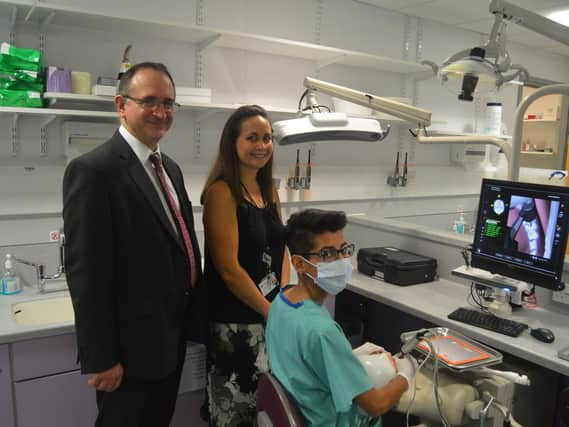University '˜at the forefront' of new dentist training


As part of the NHS70 celebrations, the university took a look back in time to find out more about dentist training in the past '“ as well as looking ahead to the future of dentistry in Portsmouth.
Trainee dentists of yesteryear would have their own box of equipment, which would have to be carried to university each day.
Advertisement
Hide AdAdvertisement
Hide AdStudents would work on real teeth, which had been removed from patients and donated to the university for training purposes.
Now, the university provides all the equipment, and students work with virtual reality to get immediate feedback on their work and get dentistry down to a fine art.
Reflecting on the advancements in dentistry, head of school Professor Chris Louca said: '˜Dentistry has come a long way in the past 70 years.
'˜Things move on very quickly and dentistry is now very high tech, and the training itself is much more streamlined, as well as integrated with other health professionals.'
Advertisement
Hide AdAdvertisement
Hide AdAssociate head of innovation Sarah Barber said: '˜There is so much connection between the different services now that it makes sense to work together.
'˜Our students head out into the field together so it makes for great experience as they head out into the real world of healthcare.
'˜As for the virtual reality, it means we can give instant feedback to students and they can more accurately see what they're doing with the teeth.'
Nida Malik, 28, is a newly qualified hygiene therapist at the university.
Advertisement
Hide AdAdvertisement
Hide AdShe said: '˜A big part of the industry is working together '“Â and having the facilities to do that means we are able to transition over into the NHS.
'˜Being a hygiene therapist that can do dental work and look at the rest of the body frees up dentists to focus on important patients who need fillings or tooth extractions.'